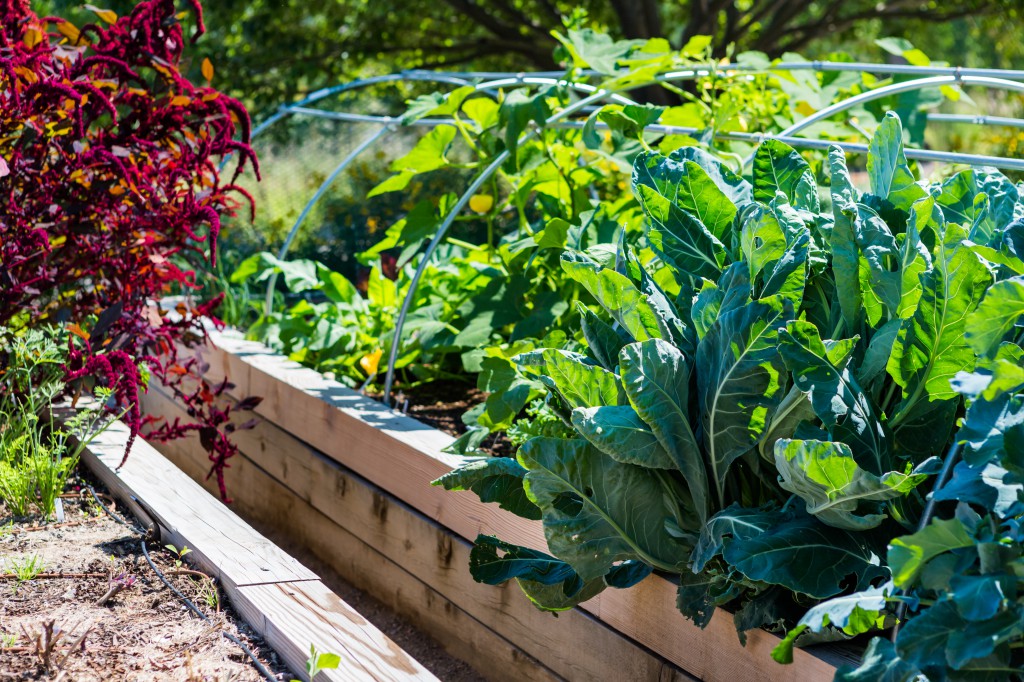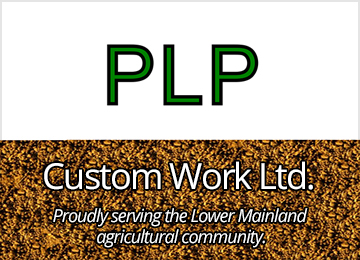by Cate Pedersen

Depending on the crop, and whether it’s indoor or outdoor, urban farms create pockets of green in the city, rest stops for pollinators, and a source of food and income for city dwellers. Other benefits include community building and restoration of underused city spaces.
A farm could be located in a parking lot, back yard, shipping container, or on a rooftop; they can be income generators for a small family or larger companies employing several people.
Commercial urban farms, whether on residential land or on industrial or commercial property, create revenue through sales at farmers markets and community supported agriculture (CSA) programs, and growers generally use organic and sustainable practices.
Organizations like the Vancouver Urban Farming Society (VUFS) support the interests of urban farmers and share relevant information for the consumer, the home gardener, as well as for-profit ventures. The VUFS website offers a place to sign up for weekly deliveries of produce or newsletters, and lists events and workshops.

Executive Director of VUFS, Marcela Crowe, M.E.S., spoke at the Pacific Agriculture Show in January and stated that Vancouver’s by-laws and policies needed to catch up with the urban farming movement. Crowe and the VUFS were working with the city to help clear up the legal grey zone and encourage the creation of a business license for urban farms.
Crowe added that as well as growing food, urban farming has a unique opportunity to impact people by engaging them in the farming process, involving students, young people, and volunteers. There is a social benefit to urban farming and children knowing where their food comes from. Crowe also pointed out that urban farming allows people interested in farming as a career—without easy access to farmland—to receive education on a smaller scale.
A bylaw was introduced in Vancouver in February which clearly defines urban farms and separates those in residential districts from commercial and industrial. A report from City Council states, “urban farming is experiencing a renaissance across North America, as food growing is being reintroduced to cities after it was mostly excluded through industrialization.”
Though Council has not formalized policies for urban agriculture yet, there is a proposed annual license fee coming for residential urban farmers of ten dollars, making it easier to apply for insurance and allow for better tracking of these farms. Commercial urban farm operations will be required to fill out more lengthy forms and applications, but as the urban farming movement grows this will become an important assessment tool.
Urban farming is undoubtedly a way to achieve green goals and increase food security for cities and towns, and applying regulations and licensing to these farms will bolster consumer confidence and allow producers to build strong business plans for the future.
Anyone interested in learning more may find the following helpful:
- Urban Farming Guidebook 2013 edition (Planning for the Business of Growing Food in BC’s Towns & Cities)
- There is a wealth of information on the VUFS website including the Urban Farming Practices in Metro Vancouver research report, which lists farms and edible landscaping organizations.
- City of Vancouver Council report regarding urban farming by-laws may be accessed HERE
VUFS CALL FOR PRESENTERS at The 6th Annual Vancouver Urban Farming Forum, November 26th at the Creekside Community Centre.












